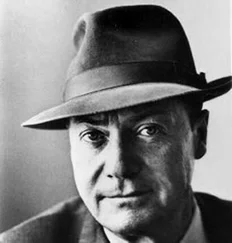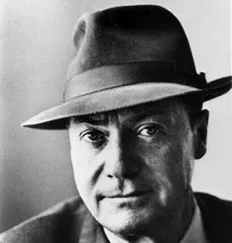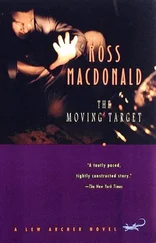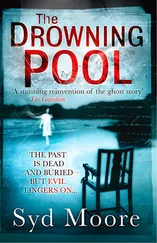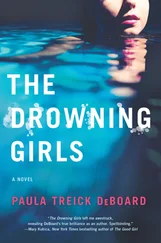Ross Macdonald - The drowning pool
Здесь есть возможность читать онлайн «Ross Macdonald - The drowning pool» весь текст электронной книги совершенно бесплатно (целиком полную версию без сокращений). В некоторых случаях можно слушать аудио, скачать через торрент в формате fb2 и присутствует краткое содержание. Жанр: Крутой детектив, на английском языке. Описание произведения, (предисловие) а так же отзывы посетителей доступны на портале библиотеки ЛибКат.
- Название:The drowning pool
- Автор:
- Жанр:
- Год:неизвестен
- ISBN:нет данных
- Рейтинг книги:5 / 5. Голосов: 1
-
Избранное:Добавить в избранное
- Отзывы:
-
Ваша оценка:
- 100
- 1
- 2
- 3
- 4
- 5
The drowning pool: краткое содержание, описание и аннотация
Предлагаем к чтению аннотацию, описание, краткое содержание или предисловие (зависит от того, что написал сам автор книги «The drowning pool»). Если вы не нашли необходимую информацию о книге — напишите в комментариях, мы постараемся отыскать её.
, Lew Archer takes this case in the L.A. suburbs and encounters a moral wasteland of corporate greed and family hatred—and sufficient motive for a dozen murders.
The drowning pool — читать онлайн бесплатно полную книгу (весь текст) целиком
Ниже представлен текст книги, разбитый по страницам. Система сохранения места последней прочитанной страницы, позволяет с удобством читать онлайн бесплатно книгу «The drowning pool», без необходимости каждый раз заново искать на чём Вы остановились. Поставьте закладку, и сможете в любой момент перейти на страницу, на которой закончили чтение.
Интервал:
Закладка:
“Put it away,” I said. “Get out of town tonight if you can.”
“Yeah. Sure. I’ll do just what Pat wanted me to. He really was a swell guy after all.”
I turned and went out the door, so that she wouldn’t see my face. “Goodbye, Gretchen.”
The money wouldn’t do her any permanent good. She’d buy a mink coat or a fast car, and find a man to steal one or wreck the other. Another Reavis, probably. Still, it would give her something to remember different from the memories that she had. She had no souvenirs and I had too many. I wanted no mementos of Reavis or Kilbourne.
Mrs. Strang ushered me into James Slocum’s bedroom. It was a very manly room, equipped with red leather chairs and solid dark furniture: Prints of old sailing vessels, like portholes opening on a motionless sea, adorned the paneled oak walls. Built-in bookcases, crammed with volumes, covered the length and height of one wall. The kind of room a hopeful mother might furnish for her son.
Olivia Slocum’s son was sitting up at the end of the great four-poster bed. His face was bloodless and thin. In the late gray light from the windows he looked like a silver image of a man. Francis Marvell was sitting on his own feet in a chair beside him. Both of them were intent on a chessboard set with black and white ivory pieces that rested on the edge of the bed between them.
Slocum’s hand emerged from his scarlet silk sleeve and moved a black knight. “There.”
“Jolly good,” Marvell said. “Oh, jolly good.”
Slocum withdrew his dreaming gaze from the board and turned it on me. “Yes?”
“You said you would see Mr. Archer?” the housekeeper faltered.
“Mr. Archer? Oh. Yes. Come in, Mr. Archer.” Slocum’s voice was weak and vaguely peevish.
Mrs. Slocum left the room. I stood where I was. Slocum and Marvell projected an atmosphere, a circle of intimacy, which I didn’t care to enter. Nor did they want me to enter it. Their heads were turned toward me at the same impatient angle, willing me to be gone. To leave them to the complex chess-play between them.
“I hope that you’re recovering, Mr. Slocum.” I had nothing better to say.
“I don’t know, I have had a perfectly dreadful series of shocks.” Self-pity squeaked behind the words like a rat behind the wall. “I have lost my mother, I have lost my wife, my own daughter has turned against me now.”
“I’m standing by, dear fellow,” Marvell said. “You can count on me, you know.” Slocum smiled weakly. His hand moved toward Marvell’s, which was resting slack by the chessboard, but paused short of it.
“If you’ve come about the play,” Marvell said to me, “I’m afraid I have to confess we’ve given it up. After all that’s happened, it may be months or years before I can regain the world of imagination. Poor dear James may never act again.”
“No great loss to the theatre,” Slocum said with quiet pathos. “But Mr. Archer isn’t interested in the play, Francis. I’d supposed you knew by now that he’s a detective. I imagine that he’s looking for his pay.”
“I have been paid.”
“That’s just as well. You’d never have a penny out of me. May I hazard a guess as to who paid you?”
“You needn’t. It was your wife.”
“Of course it was! And shall I tell you why?” He leaned forward, clutching the bedclothes. His eyes were bright with fever or passion. The silver face was peaked and hollowed like an old man’s. “Because you helped her to murder my mother, didn’t you? Didn’t you?”
Marvell uncoiled his legs and stood up, his face averted in embarrassment.
“No, Francis, please don’t go. I want you to hear this. I want you to know the sort of woman I’ve had to spend my life with.”
Marvell slumped back into the chair and began to bite his knuckles.
“Go on,” I said. “This is interesting.”
“It came to me the night before last. I lay here thinking the night through, and I saw the whole thing plainly. She’d always hated my mother, she wanted her money, she wanted to leave me. But she didn’t dare to murder her without assistance. You were to lend the professional touch, were you not?”
“And what was my particular contribution?”
His voice was soft and sly: “You provided the scapegoat, Mr. Archer. No doubt Maude drowned mother herself; she wouldn’t delegate that task, not she. You were there to make sure that Reavis took the blame. My suspicion was confirmed yesterday when Reavis’s cap was found in the grove by the pool. I knew that Reavis didn’t leave it there. He’d left it on the front seat of the car. I saw it in the car myself. I suggest that you saw it there too, and realized what could be done with it.”
“I’m not very suggestible, Mr. Slocum. But let’s assume that what you say is true. What are you going to do about it?”
“There is nothing I can do.” With his eyes turned up toward the ceiling, his hands now gripping each other, he looked like a mad saint. “In order to have you punished, I should have to trumpet my shame, my wife’s shame, to the world. You can rest easy, unless you have a conscience. Last night I did my duty to my dead mother. I told my wife what I have told you. She killed herself. It was fitting.”
Hard words rose in me. I held them back with clenched teeth. Slocum had retreated from reality. If I told him that he had driven his wife to suicide for no good reason, it would only drive him further into the unreal world.
Maude Slocum hadn’t killed herself because she murdered her mother-in-law. Her husband’s story of the cap had simply told her that Reavis hadn’t done it. Which meant that someone else had.
I said to Marvell: “If you care about this man, you’d better get him a damn good doctor.”
He batted his eyes at me, and stuttered something incoherent against his knuckles. Slocum’s face was still turned to the ceiling, wearing a sad holy smile. I went out. Form the hallway I heard him say: “It’s your move, Francis.”
I went through the house alone, thinking of Maude Slocum and looking for her daughter. The rooms and corridors were empty and still. The tide of violence running in the house had permanently ebbed and drawn the life out with it. The veranda and the loggia and the terraces were empty of life, except for the flowers burning in the fading light. I avoided the pool, which glimmered through the trees like a wicked blade. At the end of the funereal alley of cypresses I came to the old lady’s garden.
Cathy was sitting on a stone bench islanded among the lake of flowers. Her face was turned to the west, where a while before the sun had died in a glory. Her young look traveled up beyond the fieldstone wall of the garden to the mountains. She was watching their purple masses as if they formed the walls of a great prison where she had been sentenced to live alone forever.
I called to her over the gate: “Cathy. May I come in?”
She turned slowly, the mountains huge and ancient in her eyes. Her voice was flat: “Hello, Mr. Archer. Do come in.”
I released the redwood latch and stepped into the garden.
“Don’t close it,” she said. “You can leave it open.”
“What are you doing?”
“Just thinking.” She moved aside on the bench, to make room for me. The concrete surface still held the sun’s heat.
“What about?”
“Me. I used to think this was all so beautiful, and now it doesn’t mean a thing. Coleridge was right about nature, I guess. You see the beauty there if you have it in your heart. If your heart is desolate, the world is a wilderness. Did you ever read his ‘Ode to Dejection’?”
I said I never had.
“I understand it now. I’d kill myself if I had my mother’s courage. As it is, I suppose I’ll sit around and wait for something to happen to me. Something good or something bad, it doesn’t really matter.”
Читать дальшеИнтервал:
Закладка:
Похожие книги на «The drowning pool»
Представляем Вашему вниманию похожие книги на «The drowning pool» списком для выбора. Мы отобрали схожую по названию и смыслу литературу в надежде предоставить читателям больше вариантов отыскать новые, интересные, ещё непрочитанные произведения.
Обсуждение, отзывы о книге «The drowning pool» и просто собственные мнения читателей. Оставьте ваши комментарии, напишите, что Вы думаете о произведении, его смысле или главных героях. Укажите что конкретно понравилось, а что нет, и почему Вы так считаете.





